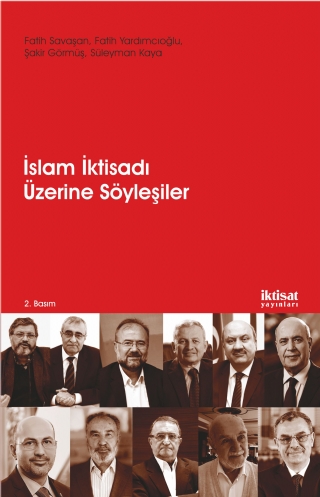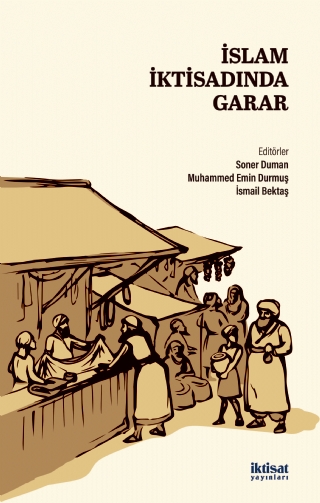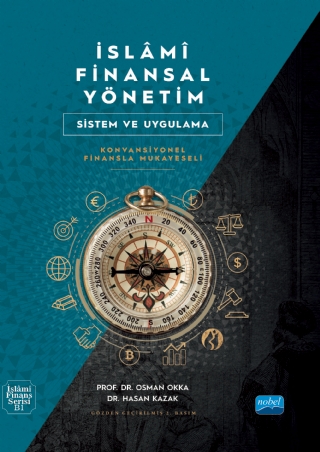Economic History \ 1-1

It is difficult to understand people and society… It is even more difficult to understand the relationships between people, society and economy… Because…
• On the one hand, the irresistible attraction of the relations established with strong ties, on the other hand, the visionaryness of the relations based on innovation with weak ties…
• On the one hand, those who do not change the old for anything, those who are crushed under 'creative destruction', on the other hand, those who replace the old with the new, those who see technology as superior to humans, and those who have a heart like a machine...
• On the one hand, those who do not want to be put in the 'iron cage' of capitalism, on the other hand, the petrified hearts who think that unlimited power is power…
• On the one hand, those who act with the understanding of 'a bite and a cardigan', on the other hand, the pretentious people who use this understanding as an excuse and prevent themselves from working and turn idleness into a philosophy of life...
• On the one hand, those who take their bread out of stone, on the other hand, those who consume themselves as they consume, those who cannot have anything because they have everything...
• On the one hand, those who create capital for themselves from mutual trust and culture, on the other hand, those who acquire wealth, property and money for themselves.
• On the one hand, potlatch culture wins as it loses, on the other hand, selfish and self-seeking people who seek ways to gain more as capitalism gains.
• Those who are stuck in understatement on the one hand, and those who do not give up on excess on the other...
• Longing for local culture on the one hand, admiration for the global on the other...
• On the one hand, those who have the morality of submissiveness, and on the other hand, those who do not give up the morality of rebellion…
• On the one hand, “Our society rots without our virtues.” said Socrates, on the other hand, “Our society cannot develop without our vices.” said Mandeville…
• Those who are lost in cultural depths on the one hand, and those who lose their culture to civilization on the other.
• On the one hand, those who live with the American dream, on the other hand, those whose worlds turn into a nightmare...
• On the one hand, the 'knowledgeable' person of Neo-Classical economics, on the other hand, the person who cannot get rid of their cognitive biases…
• On the one hand, those who always sing the same refrain, on the other hand, entrepreneurs pushing the limits of innovation...
• Those who act as if they will never die on one side and will die tomorrow on the other…
Sociology of Economics aims at the journey of finding the 'economics in life', not the 'life in economics'. For this purpose, by making use of the views of different thinkers from Adam Smith to Karl Marx, from Max Weber to Emile Durkheim, from Werner Sombart to Joseph Schumpeter, from Karl Polanyi to Mark Granovetter and Pierre Bourdieu, the lost spirit in economics and society ; He tries to find real economics by examining the narcissist and hedonist approaches of postmodern consumer culture and the social and economic relations created by global capitalism. This book is, “First there was people, not economics.” Based on its motto, it tries to understand and make sense of the economic processes from the most primitive ages to the present day. Now is the time to question more the economic approaches that isolate people and society.
• On the one hand, the irresistible attraction of the relations established with strong ties, on the other hand, the visionaryness of the relations based on innovation with weak ties…
• On the one hand, those who do not change the old for anything, those who are crushed under 'creative destruction', on the other hand, those who replace the old with the new, those who see technology as superior to humans, and those who have a heart like a machine...
• On the one hand, those who do not want to be put in the 'iron cage' of capitalism, on the other hand, the petrified hearts who think that unlimited power is power…
• On the one hand, those who act with the understanding of 'a bite and a cardigan', on the other hand, the pretentious people who use this understanding as an excuse and prevent themselves from working and turn idleness into a philosophy of life...
• On the one hand, those who take their bread out of stone, on the other hand, those who consume themselves as they consume, those who cannot have anything because they have everything...
• On the one hand, those who create capital for themselves from mutual trust and culture, on the other hand, those who acquire wealth, property and money for themselves.
• On the one hand, potlatch culture wins as it loses, on the other hand, selfish and self-seeking people who seek ways to gain more as capitalism gains.
• Those who are stuck in understatement on the one hand, and those who do not give up on excess on the other...
• Longing for local culture on the one hand, admiration for the global on the other...
• On the one hand, those who have the morality of submissiveness, and on the other hand, those who do not give up the morality of rebellion…
• On the one hand, “Our society rots without our virtues.” said Socrates, on the other hand, “Our society cannot develop without our vices.” said Mandeville…
• Those who are lost in cultural depths on the one hand, and those who lose their culture to civilization on the other.
• On the one hand, those who live with the American dream, on the other hand, those whose worlds turn into a nightmare...
• On the one hand, the 'knowledgeable' person of Neo-Classical economics, on the other hand, the person who cannot get rid of their cognitive biases…
• On the one hand, those who always sing the same refrain, on the other hand, entrepreneurs pushing the limits of innovation...
• Those who act as if they will never die on one side and will die tomorrow on the other…
Sociology of Economics aims at the journey of finding the 'economics in life', not the 'life in economics'. For this purpose, by making use of the views of different thinkers from Adam Smith to Karl Marx, from Max Weber to Emile Durkheim, from Werner Sombart to Joseph Schumpeter, from Karl Polanyi to Mark Granovetter and Pierre Bourdieu, the lost spirit in economics and society ; He tries to find real economics by examining the narcissist and hedonist approaches of postmodern consumer culture and the social and economic relations created by global capitalism. This book is, “First there was people, not economics.” Based on its motto, it tries to understand and make sense of the economic processes from the most primitive ages to the present day. Now is the time to question more the economic approaches that isolate people and society.

Many issues such as what the economic view of Islam is, whether it offers an economic system, what solutions it provides to people's needs, and through which institutions historically Muslims carry out their economic activities have been discussed by different segments for a long time and still continue to be discussed. Not only theoretical efforts, but also many practical efforts have been put forward and institutions have been established. Sometimes the practice side, led by Islamic banks, directed other theoretical studies, and sometimes the theory tried to influence the practice. On the other hand, with the growth of Islamic finance, regulatory authorities have inevitably been included in this ecosystem. In the end, many stakeholders, interconnected or not, ponder on Islamic economics and finance and contribute to keeping this field on the agenda.
Studies in the field of Islamic economics and finance have increased for Turkey, especially after the 1980s. Islamic lawyers, employees in the Islamic finance sector, regulatory agencies, academics and many more contribute to the field. Among them, some names played leading roles in their own fields and have been influential in the reaching of Islamic economics and finance to a much wider audience today. This book consists of interviews with professors who have worked in this field for many years, industry representatives and regulators operating in the field of Islamic finance.
Studies in the field of Islamic economics and finance have increased for Turkey, especially after the 1980s. Islamic lawyers, employees in the Islamic finance sector, regulatory agencies, academics and many more contribute to the field. Among them, some names played leading roles in their own fields and have been influential in the reaching of Islamic economics and finance to a much wider audience today. This book consists of interviews with professors who have worked in this field for many years, industry representatives and regulators operating in the field of Islamic finance.

The most basic principles that Islam observes in human relations; observance of justice, prevention of injustice, ensuring social stability, entrusting the trust to those who are competent, open and transparent relations between people, preventing transactions and dispositions that may lead to conflicts between people. These principles also guided the instructions of Islam regarding commercial relations between people. In this context, tortious acts such as theft and extortion are prohibited, as well as interest, verbal or de facto cheating that leads to the exploitation of one party in contracts.
Garar, which is the subject of this book, is also prohibited because it causes commercial relations between people to be carried out in an open and transparent manner and cause conflicts and fights between people. The book consists of the papers presented in the workshop named "Garar in Classical Fiqh and Its Effect on Today's Economic Transactions", which was organized with the aim of addressing many aspects of the ban on garar, which was discussed in the classical fiqh literature and also encountered in modern economic transactions, by the participants, which were developed and converted into articles. This book, in which different authors deal with the prohibition of garar in Islamic fiqh from conceptual, intellectual and methodological perspectives, has been brought together in order to establish a solid link between our classical fiqh heritage and today's economic affairs.
Garar, which is the subject of this book, is also prohibited because it causes commercial relations between people to be carried out in an open and transparent manner and cause conflicts and fights between people. The book consists of the papers presented in the workshop named "Garar in Classical Fiqh and Its Effect on Today's Economic Transactions", which was organized with the aim of addressing many aspects of the ban on garar, which was discussed in the classical fiqh literature and also encountered in modern economic transactions, by the participants, which were developed and converted into articles. This book, in which different authors deal with the prohibition of garar in Islamic fiqh from conceptual, intellectual and methodological perspectives, has been brought together in order to establish a solid link between our classical fiqh heritage and today's economic affairs.

Today, due to the rapid development of the Islamic finance sector and the fact that Islamic funds are approaching 3 trillion dollars, interest in this field has increased gradually, on the one hand, publications in this field have increased, on the other hand, Islamic financial institutions have become institutionalized to a large extent. While all these developments were taking place, the aspect of Islamic finance towards companies together with institutions operating in money and capital markets - that is, studies on the application of national and international companies to ordinary, collective, commandite, limited, joint-stock and holding companies - remained relatively behind. This book has been prepared to meet this need, covering almost all areas of financial management and in comparison with conventional finance. For this reason, the book has an intermediate upper structure.
In the book, the basic principles of finance related to Islamic finance within the framework of Islamic law are presented to the reader in a systematized manner in a systematic way, in comparison with conventional finance, and it is shown in detail how Islamic finance can be applied in all areas of the activities of companies in real life. Thus, it is aimed for the reader to gain knowledge in a structure that can think financially with a numerical and analytical method and solve the financial problems of the company by producing policies in accordance with Islam. Case studies of Islamic finance in the 22nd chapter, that is, case studies, added a different dimension to the book.
In the book, the basic principles of finance related to Islamic finance within the framework of Islamic law are presented to the reader in a systematized manner in a systematic way, in comparison with conventional finance, and it is shown in detail how Islamic finance can be applied in all areas of the activities of companies in real life. Thus, it is aimed for the reader to gain knowledge in a structure that can think financially with a numerical and analytical method and solve the financial problems of the company by producing policies in accordance with Islam. Case studies of Islamic finance in the 22nd chapter, that is, case studies, added a different dimension to the book.

Traditional social, economic and cultural values in Turkish society are trying to catch up with the speed of the new world. The effort of neo-classical economics to transform social sciences into natural sciences causes the ties between economics, human and society to be broken. The greater dominance of the 'economic' over the 'social' increases the distances between the economy and society. Economic sociology, on the other hand, looks at economic events from a sociological perspective and takes multidisciplinary approaches instead of uniform approaches. Economic sociology both looks at individual parts and tries to understand and make sense of the whole.
Suggesting a standard economic system and policy for each country is a rather limited approach. So much so that trying to solve the economic problems of a country without understanding the people, society, culture and history is like writing on water. The fact that each country's economic problems are unique brings to mind the views of Hippocrates, the founder of medicine. Hippocrates says that each patient is special and that there can be no standard treatment. As in the famous aphorism "There is no disease, there is a patient". Economic sociology is also in an effort to understand people and society by moving from historical facts. At the same time, it aims to solve economic problems by seeing and knowing the reality of each country in terms of social and economic structures.
In this study, titled "Economic Sociology in Turkey", it is explained from the perspective of different economic sociologists how economic thought formed in Turkey in the historical process and what kind of effects moral values have on the economic structure. For this purpose, the views of different thinkers, from Ziya Gökalp to Sabri Ülgener, from Fahri Fındıkoğlu to Cavit Orhan Tütengil and from Mehmet Eröz to Amiran Kurtkan Bilgiseven, are presented as thinkers who directly or indirectly contribute to the sociology of economics in Turkey. At the same time, state-centered critical approaches to solving recent social and economic problems, culture-centered Weberian approaches investigating the effects of religious and moral approaches on economic processes, capital-centered critical approaches and new economic sociology approaches are explained. One of the most important ways to reduce the distances between economy and society is to be able to take a holistic view of the social and economic problems caused by rapid liberalization in Turkey since the 1990s.
Suggesting a standard economic system and policy for each country is a rather limited approach. So much so that trying to solve the economic problems of a country without understanding the people, society, culture and history is like writing on water. The fact that each country's economic problems are unique brings to mind the views of Hippocrates, the founder of medicine. Hippocrates says that each patient is special and that there can be no standard treatment. As in the famous aphorism "There is no disease, there is a patient". Economic sociology is also in an effort to understand people and society by moving from historical facts. At the same time, it aims to solve economic problems by seeing and knowing the reality of each country in terms of social and economic structures.
In this study, titled "Economic Sociology in Turkey", it is explained from the perspective of different economic sociologists how economic thought formed in Turkey in the historical process and what kind of effects moral values have on the economic structure. For this purpose, the views of different thinkers, from Ziya Gökalp to Sabri Ülgener, from Fahri Fındıkoğlu to Cavit Orhan Tütengil and from Mehmet Eröz to Amiran Kurtkan Bilgiseven, are presented as thinkers who directly or indirectly contribute to the sociology of economics in Turkey. At the same time, state-centered critical approaches to solving recent social and economic problems, culture-centered Weberian approaches investigating the effects of religious and moral approaches on economic processes, capital-centered critical approaches and new economic sociology approaches are explained. One of the most important ways to reduce the distances between economy and society is to be able to take a holistic view of the social and economic problems caused by rapid liberalization in Turkey since the 1990s.